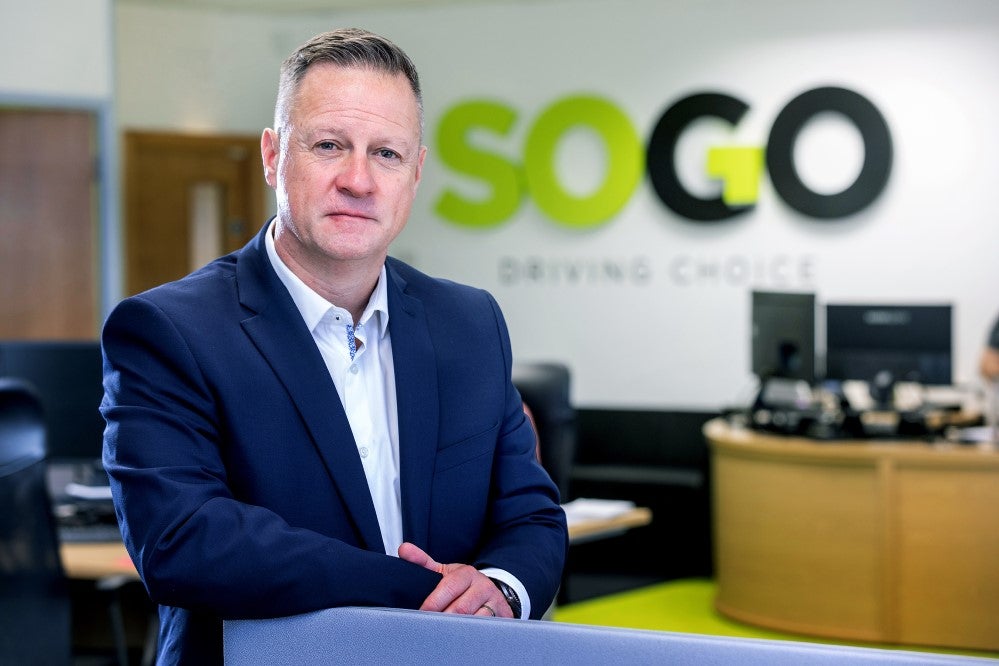
A third of British motorists (32%) state that they are far less likely to replace their existing car by committing to a long-term (three-year) lease than they were 12 months ago, an independent study has revealed.
Mobility provider SOGO researched attitudes towards personal financial commitments and car ownership.
Recent market data (released by SMMT on 3 January 2023) revealed around 1.61 million new cars were registered in 2022, down 2% compared with the 1.65 million registered in 2021 and a quarter below pre-coronavirus levels.
Battery electric new cars took a market share of around 17%, overtaking diesel for the first time to become the second most popular powertrain after petrol.
All plug-in new cars combined – including pure electrics and plug-in hybrids – took a record market share of around 23% last year.
SOGO’s research findings also indicate that only 14% of drivers would be much more likely to commit to a long-term financial lease to fund their next vehicle than 12 months ago.
How well do you really know your competitors?
Access the most comprehensive Company Profiles on the market, powered by GlobalData. Save hours of research. Gain competitive edge.

Thank you!
Your download email will arrive shortly
Not ready to buy yet? Download a free sample
We are confident about the unique quality of our Company Profiles. However, we want you to make the most beneficial decision for your business, so we offer a free sample that you can download by submitting the below form
By GlobalData37% of motorists stated they believe short-term leases are more beneficial because of the financial flexibility offered. However, 16% believed they wouldn’t benefit from a short-term lease on a new vehicle.
Reflecting significant shifts in vehicle use and ownership, SOGO provides leases from as little as four weeks, which means drivers can hit the road in a new vehicle every month if they wish.
The company believes that short-term leasing will be essential to the mass adoption of electric vehicles before 2030, when all new cars and vans powered wholly by petrol and diesel will be banned.
Electric car sales are predicted to continue to grow as the Government’s 2030 ban on the sale of new petrol and diesel cars approaches.
Previous research conducted by SOGO revealed that barriers still remain when it comes to British consumers fully embracing electric cars, with one in 10 (12%) drivers considering switching to an electric car despite concerns over range and battery reliability.

Karl Howkins, managing director of SOGO, said: “As the economy faces significant challenges, flexible leasing allows short-term demand to be met without the problems of a long-term commitment in an uncertain market. For businesses that rely on vehicle fleets, SOGO offers greater flexibility through monthly leasing for cars and LCVs.
“Monthly leasing frees capital from the balance sheet that can be deployed elsewhere in the company to fund growth. While many managers may not yet be able to transition out of traditional lease models immediately, it’s useful to start thinking about the mix across fleets.”
Howkins added: “Analysis of recent car trends indicates that not everybody needs their car as much as they used to, especially with more people working remotely or from home becoming more commonplace in the workplace. Considering a short-term flexible lease offers a great alternative to longer leases. With the ban on petrol and diesel cars coming in 2030, a shorter lease deal on a new, environmentally friendly and cheap-to-run car offers huge appeal.”
The research was conducted in January 2023 amongst 2006 UK adults and commissioned from Opinion Matters, an independent market research agency.







